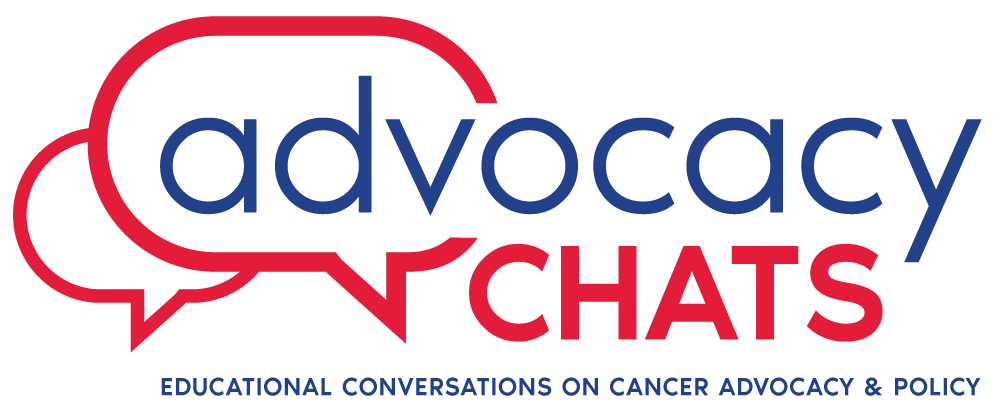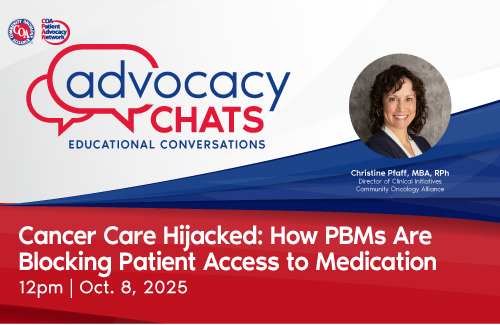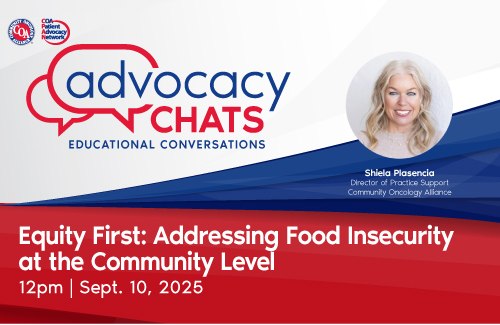Nutrition Through the Cancer Journey
Eating healthy can be a challenge, especially when life gets busy. For cancer patients and survivors, nutrition takes on extra importance. It’s critical for maintaining health during treatment and throughout the cancer journey. But with so much information out there, what’s the best approach?
In the March 2025 CPAN (COA Patient Advocacy Network) Advocacy Chat, Rose Gerber, MS, COA’s Director of Patient Advocacy and Education, spoke with April Rozzo, MS, RD, CSO, LD/N, the clinical nutrition manager at Florida Cancer Specialists and Research Institute, about this important topic. They discussed crafting personalized dietary recommendations for patients and survivors at all stages of cancer care. April also shared helpful tips and demonstrated how she supports patients, including through cooking classes.
Here are the key takeaways and actionable advice from their discussion.
https://www.youtube.com/watch?v=eQ6XuV-vlfQ
Understanding Cancer Prevention Recommendations
The American Institute for Cancer Research (AICR) offers a roadmap of recommendations for cancer prevention. These guidelines provide a solid foundation for a healthy diet. Let’s review the key points:
- Maintain a healthy weight: Overweight and obesity are linked to different types of cancers.
- Be physically active: Physical activity improves overall health and helps maintain a healthy weight.
- Eat a plant-based diet: This doesn’t mean you have to be vegetarian or vegan! It simply means changing the proportions on your plate. Aim for more fruits, vegetables, beans, and whole grains, and smaller portions of animal protein.
- Limit red meat and processed meat: Red meat includes beef, pork, and lamb. The recommendation is less than 18 ounces per week. Processed meats like bologna, salami, bacon, and sausage have links to higher cancer occurrences. Try to limit them to special occasions.
- Limit fast foods and processed foods: These foods are generally not healthy.
- Limit alcohol consumption: Higher alcohol intake has links to higher cancer occurrences. The recommendation is no more than one drink a day for women and two drinks a day for men. If alcohol isn’t important to you, there’s no need to include it in your diet.
- Limit sugar-sweetened beverages: Be mindful of sugary drinks like lattes, Frappuccinos, sports drinks, and electrolyte drinks. Water and unsweetened tea are better choices.
- Avoid supplements for cancer prevention/treatment: The evidence doesn’t always support claims that supplements reduce cancer risk. Talk with your doctor or a registered dietician about any deficiencies.
These guidelines generally apply after a cancer diagnosis but may require adjustments based on treatment.
Active Treatment Diet Vs. Long-Term Healthy Diet
There’s a difference between a long-term healthy diet and what you need during active cancer treatment. Chemotherapy, radiation, and surgery can make it challenging to maintain those healthy guidelines.
Sometimes, doctors may even recommend gaining weight. Rose shared her experience of needing to increase her calorie intake during treatment. She was even told to add ice cream to her diet! This highlights that short-term dietary adjustments are sometimes necessary. The goal is to prioritize calorie intake and manage side effects. It’s not about abandoning healthy eating forever but making temporary changes to support your body during a difficult time.
Sugar and Cancer: Separating Fact from Fiction
A common concern is that sugar “feeds” cancer cells and makes them grow faster. Is this true?
All tissues in your body, including cancer cells, use glucose (sugar) for energy. Active cells absorb more sugar. High sugar intake can indirectly increase cancer risk by leading to weight gain and obesity. Excess body fat and obesity increase the risk of many cancers.
Having some sugar in your diet isn’t directly causing cancer to grow faster if you already have cancer. The key is to limit excessive intake of simple sugars, junk food, and processed sweets. It’s about moderation and balance. You need healthy sugars from fruits, beans, vegetables, and whole grains.
Managing Treatment Side Effects with Nutrition
Cancer treatment can cause many side effects, and nutrition can play a key role in managing them. Let’s look at some common issues and practical tips.
Fatigue
Fatigue is a common side effect of cancer and its treatment. It can stem from dehydration, anemia, or poor eating habits.
Here are some actionable tips:
- Prioritize hydration: If water tastes metallic, try flavored waters, iced tea, or fruit.
- Check iron levels with a doctor: Anemia can contribute to fatigue.
- Engage in light physical activity: Short walks or household chores can help fight fatigue.
- Nibble on snacks throughout the day: This can be easier than eating large meals when you’re tired. Good options include soup or peanut butter crackers.
- Keep snacks at the bedside for easy access: This is helpful if you’re napping frequently.
- Consider nutritional drinks/protein shakes: These can supplement your nutrition when you’re not hungry.
Taste Changes
Taste changes are also very common. Water might taste metallic. Chemotherapy and radiation can also affect your taste buds.
Rebecca Katz, a chef and cookbook author, developed the “FASS” acronym to help with taste changes. It stands for:
- Fat: Use olive oil or creamy sauces.
- Acid: Squeeze lemon juice on your food (unless you have mouth sores).
- Salty: Grate Parmesan cheese or add olives or capers.
- Sweet: Pair applesauce with baked chicken.
A baking soda and salt mouth rinse can also cleanse your palate. Mix four cups of water with 3/4 teaspoon of salt and one teaspoon of baking soda. Swish, gargle, and spit it out before eating.
Mouth Sores
Mouth sores are another potential side effect of cancer treatment. If you have mouth sores, avoid acidic and spicy foods. Instead, choose bland, soft foods to minimize irritation.
Poor Appetite and Nausea
Poor appetite and nausea are major contributors to weight loss during treatment.
Try these tips:
- Set alarms/timers to remind yourself to eat every 2-3 hours: Don’t wait for hunger cues.
- Avoid overly restrictive diets: Focus on getting calories in any way you can.
- Eat bland foods: Avoid spicy or greasy options.
- Choose cold/room temperature foods: They have less odor, which can help with nausea.
- Use ginger: Ginger ale, tea, or candies can alleviate nausea.
- Ensure regular bowel movements: Constipation can worsen nausea.
- Engage in light physical activity: It can stimulate appetite.
- Focus on high-calorie, high-protein foods: These provide the most nutritional bang for your buck.
High-Calorie and High-Protein Food Ideas
Here are some foods that pack a lot of calories:
- Avocados/guacamole
- Peanut butter
- Cheese
- Granola
- Dried fruit
- Butter/oil/mayonnaise
- Nuts
- Hummus
- Ice Cream
And here are some high-protein options:
- Chicken
- Seafood
- Beef/pork (in limited quantities)
- Eggs
- Cheese (including ricotta and cottage cheese)
- Yogurt (especially Greek yogurt)
- Milk (or soy milk for protein)
- Peanut butter
- Nuts
- Beans/peas/lentils/hummus
Notice that cheese, peanut butter, nuts, and hummus appear on both lists. These foods provide both high caloric content and protein.
Many milk substitutes, like oat milk, coconut milk, and almond milk, are low in protein. If you rely on milk for protein, choose cow’s milk or soy milk.
Menu Planning Ideas
Here are some easy-to-prepare mini meals and snacks:
- Trail mix
- Scrambled eggs (with rice or avocado)
- Egg salad
- Mac and cheese
- Fruit with granola and yogurt/cottage cheese
- Baked potato with toppings
- Mashed potatoes
- Sliced fruit with peanut butter
- Oatmeal with fruit and nuts
- Milkshakes/smoothies (with added protein powder, yogurt, or peanut butter)
Resources for Cancer Patients and Caregivers
Here are some helpful resources for cancer patients and caregivers:
- American Institute for Cancer Research (AICR)
- Rebecca Katz’s The Cancer-Fighting Kitchen (cookbook and website)
- American Cancer Society
- Florida Cancer Specialists’ Nutrition and Wellness section. Here, you’ll find teaching kitchens and recipes.
CPAN Advocacy Chat Information
Stay engaged and educated with CPAN! You can participate in chats and share them with your network. Sign up for the CPAN newsletter and visit the website to learn more. You can also share your story on the website and follow CPAN on social media.
Next Month’s CPAN Advocacy Chat
Next month’s topic is State Policy Trends Shaping Patient Care in 2025 with James Lee. Join the next chat to learn more!
Navigating nutrition during cancer treatment can feel overwhelming. Remember that you’re not alone. Lean on experts, be kind to yourself, and focus on making small, sustainable changes. Every bite counts!
CPAN Advocacy Chats are regular virtual 30-minute educational conversations about cancer advocacy and policy with a guest speaker invited to discuss issues important to patients and advocates. Summaries of previous Advocacy Chats are available on the CPAN website.
Past Advocacy Chats





